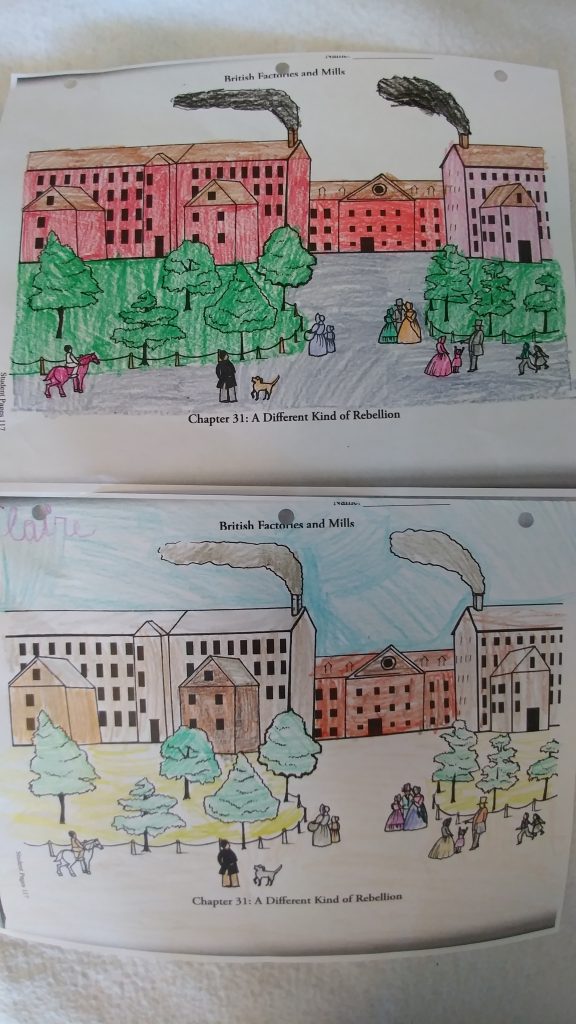Chapter 31 deals with a different kind of rebellion: the factory workers in England smashing machines for being abused in the work place. This chapter is our opportunity, parents, to steer young minds away from entitlement.
Why? Because this chapter talks about children working in factories starting at age 8. That’s right. Let that sink in, especially if you have normal children, like I do, who are still learning not to complain when they hear they have to study or read or practice an instrument.
My children will do their work every day, but it is not without a bit of coaxing on my part. We are still working on attitude and getting things done without having to be told.
I have a friend who is homeschooling her children after she was homeschooled herself. She told me that when her mom used to give her different assignments, my friend would ask, “Do I have to?”
Somehow, somewhere, my children learned this phrase, too. It’s funny, really. When I say they have to do this or that before they can consider themselves finished with school for the day, they ask, “Do I have to?”
Where did that come from? So anyway, this chapter will teach them they should be thankful they do not have to work in a factory 12 hours a day. They only have to read a book (which is interesting), copy a paragraph (which can be amusing), practice an instrument (which is intriguing), solve some math problems (which prepares them for fun science experiments later), and listen to a history lesson (which makes them wiser).
What’s not to like? Why would you not want to “have to” do school today?
The crafts or activities suggested in this chapter did not inspire us. Sorry.
